Regenerative Medicine

Jennifer Alexander-Brett, MD, PhD
Assistant Professor of Medicine, Pulmonary & Critical Care
- Email: jalexand@wustl.edu
Our research focuses on respiratory mucosal immunology, with a particular interest in intercellular crosstalk mediated by cytokines and extracellular vesicles. We employ a broad array of techniques including multi-omics analysis, protein biochemistry and cellular immunobiology to study mechanism in the airway diseases COPD, asthma, cystic fibrosis and lung transplant rejection.

Farners Amargant i Riera, PhD
Assistant Professor of Obstetrics & Gynecology
- Email: farners@wustl.edu
The Riera Lab uses a multidisciplinary approach to investigate how biochemical and biomechanical signaling from the ovary regulates folliculogenesis and oocyte quality, and whether these mechanisms are altered in reproductive-associated diseases such as PCOS and aging.
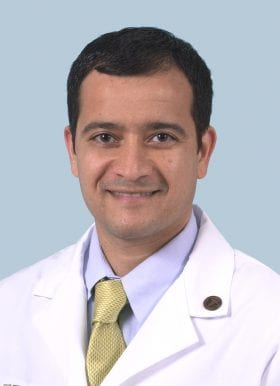
Rajendra Apte, MD, PhD
Professor, Department of Ophthalmology and Visual Sciences, Department of Developmental Biology
- Email: apte@wustl.edu
Research in the Apte lab is focused on innate immunity and immune effector mechanisms in the retina, oxidative stress and cell death, models of developmental angiogenesis and neovascularization, inflammation and photoreceptor survival, and macular degeneration.

Rita Brookheart, PhD
Assistant Professor, Medicine
- Email: rbrookheart@wustl.edu
The Brookheart Lab focuses on the intersection of metabolism and stress responses in the context of aging and metabolic disease. We use basic and translational tools to identify and investigate regulators of metabolism important in controlling cell differentiation and function, as well as organ size.

Grant Challen, PhD
Associate Professor, Division of Oncology, Department of Medicine
- Email: grantchallen@wustl.edu
The Challen lab studies the genetic and epigenetic regulation of blood-forming hematopoietic stem cells (HSCs) with the goal to identify new methods of blood cancer prevention and treatment.

Shiming Chen, PhD
Dr. Bernard and Janet R. Becker Distinguished Professor, Ophthalmology and Visual Sciences
- Email: chenshiming@wustl.edu
The Chen Lab studies the molecular mechanisms controlling photoreceptor gene expression during photoreceptor development and maintenance in the mammalian retina, and how genetic mutations cause gene mis-regulation and defects in the function and survival of the photoreceptor neurons. They particularly focus on photoreceptor-specific transcription factors, such as CRX. Their ultimate goal is to develop therapeutic strategies for treatment.

Yao Chen, PhD
Assistant Professor, Department of Neuroscience; Affiliate, Department of Biomedical Engineering
- Email: yaochen@wustl.edu
Neuromodulators such as dopamine, acetylcholine, and neuropeptides have profound effects on neural circuits and behavior. Altered neuromodulation is associated with most psychiatric disorders, major neurodegenerative disorders, and neuromodulatory systems are targets of almost all drugs of abuse. The Chen lab aims to understand how the dynamics of neuromodulators and intracellular signals contribute to the function of neuromodulators, to learning, and to the function of sleep.

Kyunghee Choi, PhD
Professor, Department of Pathology & Immunology
- Email: kchoi@wustl.edu
The Choi lab studies the molecular mechanisms regulating vascular and hematopoietic specification and development.

Matthew Ciorba, MD
Associate Professor, Division of Gastroenterology, Department of Medicine
- Email: mciorba@wustl.edu
The Ciorba lab researches Intestinal inflammation and colon cancer.

Brian Clark, PhD
Assistant Professor, Department of Ophthalmology and Visual Sciences, Department of Developmental Biology
- Email: Brian.s.clark@wustl.edu
The Clark lab is interested in understanding the molecular mechanisms underlying retinal neurogenesis and cell fate determination. Using a suite of profiling techniques, we seek to understand the gene expression and epigenetic changes governing retinal development.
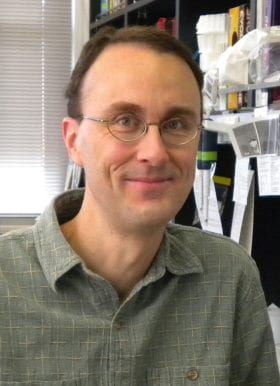
Joseph Corbo, MD, PhD
Professor, Department of Pathology and Immunology
- Email: jcorbo@wustl.edu
The Corbo lab studies the transcriptional regulatory networks that underlie the development, evolution, and diseases of photoreceptors.

Aaron DiAntonio, MD, PhD
Professor, Department of Developmental Biology
- Email: diantonio@wustl.edu
The DiAntonio lab investigates the molecular mechanisms underlying neurodegeneration and neuroinflammation using genetic, molecular, cell biological, and neuroanatomical techniques in both human stem cell-derived neurons and animal models. Their goal is to translate fundamental mechanistic insights into novel treatments for neurological disease.
The DiAntonio lab is ideal for students interested in MD/PhD programs or PhD students interested in the intersection between fundamental research and the development of novel therapies. Applicants with some previous research experience are preferred.
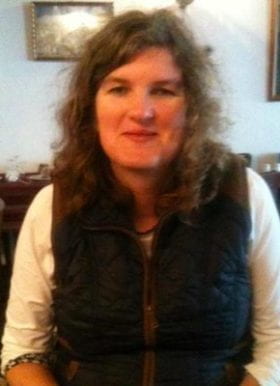
Sabine M Dietmann, PhD
Assistant Professor of Developmental Biology and Medicine, School of Medicine
- Email: sdietmann@wustl.edu
The Dietmann Lab specializes in the development of integrative multi-omics and machine learning approaches to the complex data sets generated by single-cell sequencing technologies in developmental biology and medicine. Her research has focused on the epigenetic landscape of embryonic stem cells and in vitro systems of human development.

Naomi Dirckx, PhD
Assistant Professor, Department of Orthopedic Surgery
- Email: dirckx@wustl.edu
My research interests revolve around the investigation of a crucial TCA metabolite called citrate and its plasma-membrane transporter, SLC13A5. Utilizing murine models, my lab will study the role of SLC13A5-mediated cellular citrate import in bone mineralization throughout growth and aging, while also investigating the systemic implications of altered citrate partitioning in skeletal tissues by targeting osteogenic citrate metabolism. In addition, I’m also interested in elucidating the molecular mechanisms behind SLC13A5 epilepsy, a rare human disease with loss-of-function mutations in SLC13A5, causing childhood epilepsy, developmental delays, hypotonic muscles and amelogenesis imperfecta.

David Gutmann, MD, PhD
Professor, Department of Neurology
- Email: gutmannd@wustl.edu
The Gutmann lab studies the genetic, cellular and molecular causes for neurodevelopmental disabilities and brain tumorigenesis using novel genetically engineered mouse and human iPSC models.
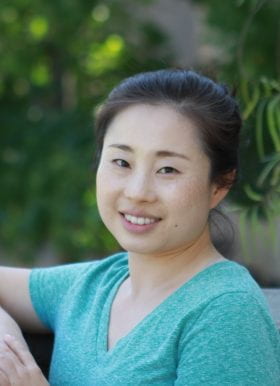
Claudia Han, PhD
Assistant Professor, Department of Pathology & Immunology
- Email: claudiah@wustl.edu
Microglia are resident macrophages of the brain that engage in a variety of processes essential for brain development and homeostasis. Microglia dysfunction contributes to the pathogenesis of neurodegenerative diseases and neurodevelopmental conditions. My research program investigates microglia phenotypes in these neuropathologies through the lens of epigenomics and transcriptomics. Particularly, I am interested in identifying and modifying the microglial gene regulatory networks that respond to changes in the brain environment through the use of mouse genetic models, humanized mice models and iPSCs.

Jing Hughes
Assistant Professor, Division of Endocrinology, Metabolism & Lipid Research
- Email: jing.hughes@wustl.edu
We study how the primary cilium, sensory antenna of the cell, regulates signaling and secretory functions in the pancreatic islet.
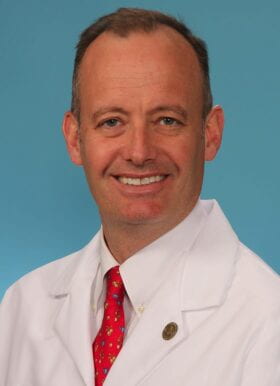
Benjamin Humphreys, MD, PhD
Professor and Chief, Division of Nephrology, Department of Medicine
- Email: humphreysbd@wustl.edu
The Humphreys Lab investigates kidney injury, regeneration and fibrosis using single cell transcriptomic, epigenomic and spatial techniques, pluripotent stem cell-derived kidney organoids, mouse models and human tissue. Successful applicants will have the opportunity to learn wet lab approaches including single cell pipelines and may receive computational training depending on interest and experience.

Sanjay Jain, MD, PhD
Associate Professor, Division of Nephrology, Department of Medicine
- Email: sanjayjain@wustl.edu
The Jain lab studies the molecular and cellular mechanisms that regulate maintenance, differentiation and function of kidney progenitors in normal development and disease states.

Sheng Chih (Peter) Jin, PhD
Assistant Professor, Department of Genetics
- Email: jin810@wustl.edu
Research in the Jin lab is devoted to identifying the genes and elucidating the molecular, cellular, and developmental mechanisms that drive the development of specific neurodevelopmental disorders, including congenital hydrocephalus, cerebral palsy, and Moyamoya disease.

Aaron Johnson, PhD
Assistant Professor, Department of Developmental Biology
- Email: anjohnson@wustl.edu
The Johnson lab develops and uses a variety of functional genetic approaches to gain deep mechanistic understanding into the processes controlling muscle development, regeneration, and disease.

Yoon-A Kang, PhD
Assistant Professor, Department of Medicine, Division of Hematology
- Email: Yoonakang@wustl.edu
The Kang lab's research interests are understanding the mechanisms underlying cell fate decision and lineage specification in hematopoietic stem cells and multipotent progenitors to modulate lineage output in disease and aging contexts.

Celeste Karch, PhD
Professor, Department of Psychiatry
- Email: karchc@wustl.edu
The Karch lab studies the molecular mechanisms underlying neurodegenerative tauopathies.

Miriam Kim, MD
Assistant Professor, Oncology
- Email: miriamykim@wustl.edu
Focused research on rational manipulation of human hematopoietic cells for the treatment of disease by combining genetically engineered hematopoietic stem cells and chimeric antigen receptor T cells for therapy of acute myeloid leukemia.

Eynav Klechevsky, PhD
Associate Professor, Immunology
- Email: eklechevsky@wustl.edu
The Klechevsky Lab investigates the role of dendritic cell subsets in both healthy and diseased tissues, as well as the environmental cues that regulate their development, with the goal of developing novel immunotherapy approaches to combat cancer and autoimmune diseases.

Kristen Kroll, PhD
Professor, Department of Developmental Biology
- Email: kkroll@wustl.edu
The Kroll lab uses human stem cell and mouse models to study transcriptional and epigenetic regulation of brain development and its disruption to cause neurodevelopmental disorders, including autism and intellectual disability syndromes.
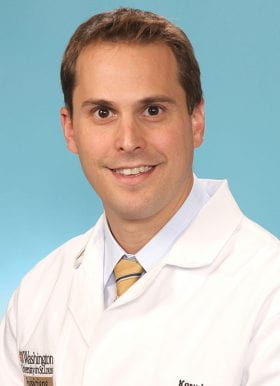
Kory Lavine, MD, PhD
Professor, Department of Medicine, Division of Cardiology, Department of Developmental Biology
- Email: klavine@wustl.edu
The overarching goal of the Lavine laboratory is to identify disease mechanisms that contribute to the pathogenesis of heart failure and design novel strategies to effectively treat these important diseases. They focus on two important areas: precision therapies for heart failure and immune cell heterogeneity and ontogeny.

Tristan Qingyun Li, PhD
Assistant Professor, Department of Neuroscience, Department of Genetics
- Email: qingyunli@wustl.edu
The Li laboratory is broadly interested in neuroimmunology with a focus on microglial biology. Particularly, the lab is interested in combining cutting-edge single-cell genomic technologies with in vitro and in vivo genetic, molecular and cellular tools to investigate microglial development, heterogeneity and mechanisms of neuro-immune interactions underlying brain structure and disease. We try to address two major questions: (1) how microglia (and other immune cells) are different in development, aging and neurodegeneration, and related to that, how these different populations of microglia interact with other neural cells to control brain structure and functioning; (2) how microglial fate is specified and diverged from other tissue macrophages during early embryonic development. By studying these questions, the overarching goal is to gain a better understanding of microglial functions in the establishment of the nervous system, as well as how changes in these functions contribute to neurological diseases.

Helen McNeill, PhD
Professor, Department of Developmental Biology
- Email: mcneillh@wustl.edu
The McNeill lab studies how tissue growth and patterning are regulated in normal development, and how disruptions lead to disease. Current projects focus on Nemp proteins in metazoan fertility and the Fat/Hippo pathway in flies and mice.
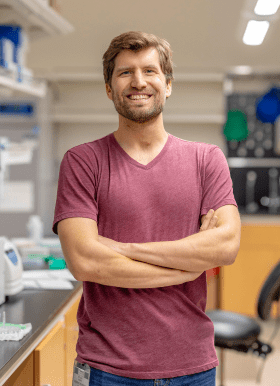
Michael P. Meers, PhD
Assistant Professor, Department of Genetics
- Email: meers@wustl.edu
The Meers Lab studies how transcription factors interact with and overcome barriers presented by chromatin landscapes to specify developmental and cellular reprogramming outcomes. To do so, we develop cutting-edge epigenomics techniques to map transcription factor binding and chromatin structure in the same context at high resolution. We further use these tools and the insights gained from them to better understand the etiology of a range of cancers whose pathogenesis centers on the global dysregulation of chromatin landscapes.

Gretchen Meyer, PhD
Assistant Professor, Program in Physical Therapy; Affiliate, Department of Biomedical Engineering
- Email: meyerg@wustl.edu
The Meyer lab focuses on understanding how changes at the cellular level in skeletal muscle affect muscle structure and function, and, in turn, how pathological changes in muscle affect cellular processes. In particular, their research investigates fat’s effect on muscle function and how that effect is regulated at cellular and tissue levels.

Timothy Miller, MD, PhD
Professor, Department of Neurology
- Email: miller.t@wustl.edu
The Miller Laboratory is dedicated to understanding neurodegenerative diseases such as amyotrophic lateral sclerosis (ALS) and dementias in order to develop new, effective, and safe treatments. They focus on translational neuroscience, new therapeutic approaches for neurodegenerative diseases, and precision medicine.
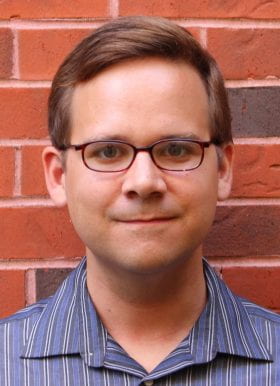
Jeffrey Millman, PhD
Professor, Division of Endocrinology, Metabolism, and Lipid Research, Department of Medicine; Department of Biomedical Engineering
- Email: jmillman@wustl.edu
The Millman lab investigates novel stem cell technology and biomedical engineering approaches for the treatment of diabetes.
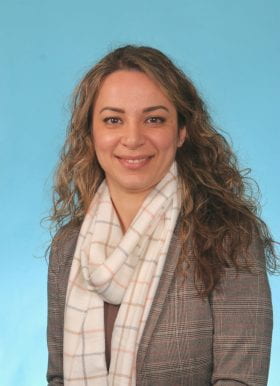
Mayssa Mokalled, PhD
Assistant Professor, Department of Developmental Biology
- Email: mmokalled@wustl.edu
The Mokalled lab investigates mechanisms of spinal cord regeneration after injury or disease using zebrafish as a primary model.

Josh Morgan, PhD
Assistant Professor of Ophthalmology
- Email: jlmorgan@wustl.edu
The Morgan Lab studies the organization, development, degeneration, and regeneration of the synaptic organization of the visual system. We are currently focused on determining the extent to which microcircuitry in the visual thalamus can recover from denervation..

David Ornitz, MD, PhD
Professor, Department of Developmental Biology
- Email: dornitz@wustl.edu
The Ornitz lab investigates the functions of Fibroblast Growth Factors (FGFs) and their role in development, homeostasis, tissue regeneration, and response to injury. We primarily use mouse models and cell culture. Our areas of interest include skeletal homeostasis and maintenance of bone mass, postnatal lung development, pulmonary hypertension, and heart failure.
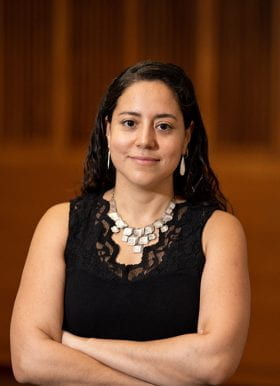
B. Duygu Ozpolat, PhD
Assistant Professor, Department of Biology, Department of Developmental Biology
- Email: bdozpolat@wustl.edu
If humans lose their reproductive cells (i.e eggs and sperm) they become infertile, in contrast, some animals regenerate their reproductive cells and reproductive organs. The Ozpolat lab's goal is to uncover the mechanisms of reproductive cell and tissue regeneration by identifying the cell types and genes involved in this process, which will inform regenerative medicine approaches.

Hua Pan, PhD
Associate Professor, Department of Medicine; Affiliate, Department of Biomedical Engineering
- Email: hpan@wustl.edu
The Pan Lab is studying the basic conception, development, and clinical application of novel nanostructures that serve as safe and effective delivery vehicles for therapeutic nucleotides to mitigate diseases including arthritis and cancer treatment induced vital organ injury.

Elizabeth Pollina, PhD
Assistant Professor, Department of Developmental Biology
- Email: pollina@wustl.edu
The Pollina lab leverages new tools and techniques from neuroscience, epigenetics, and genome integrity to advance our understanding of genome fidelity in the nervous system of living organisms. We characterize how diverse environmental stimuli trigger changes in transcription, chromatin, and DNA damage and examine how these dynamic processes go awry in aging and neurological disease.

Erica L Scheller, DDS, PhD
Associate Professor, Department of Medicine; Department of Cell Biology & Physiology; Affiliate, Department of Biomedical Engineering
- Email: scheller@wustl.edu
The Scheller laboratory synthesizes concepts from cell biology, physiology, and bioengineering to study the relationships between the nervous system and the skeleton. They have a directed interest in understanding how neural signals contribute to skeletal homeostasis, and how perturbations to this system contribute to bone loss, impaired healing, and altered regeneration.

Laura Schuettpelz, MD, PhD
Professor, Department of Pediatrics, Department of Developmental Biology
- Email: Schuettpelz_l@wustl.edu
Research in the Schuettpelz lab focuses on understanding how inflammatory signals regulate hematopoietic stem cells, and also how these signals can contribute to hematopoietic malignancies.
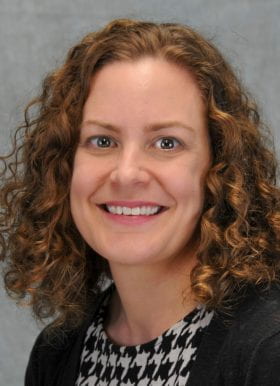
Lavinia Sheets, PhD
Assistant Professor, Department of Otololaryngology, Department of Developmental Biology
- Email: sheetsl@wustl.edu
The Sheets lab uses zebrafish as a model system to understand how sensory hair cells of the auditory system develop, degenerate, and regenerate. A main focus of the lab is to identify biological pathways that promote nerve regeneration and hair-cell reinnervation with the goal of providing information toward clinical regenerative therapies.
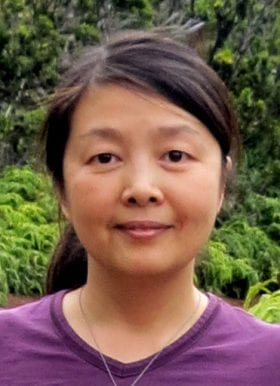
Hua Shen, PhD
Assistant Professor, Department of Orthopedic Surgery
- Email: hshen22@wustl.edu
The Shen lab's research mostly focuses on tendon injury, a common and challenging orthopaedic condition that causes pain and long-term functional disability. In collaboration with orthopaedic surgeons and tissue engineers, they use a multidisciplinary approach to study cellular and molecular regulation of tendon homeostasis and healing processes, with a particular interest in developing new stem cell vesicle and small molecule-based therapies.

Matthew Silva, PhD
Julia and Walter R. Peterson Orthopaedic Research Professor; Affiliate, Department of Biomedical Engineering
- Email: silvam@wustl.edu
The Silva lab studies the mechanical and molecular factors that regulate loading-induced bone formation and bone injury response and repair.
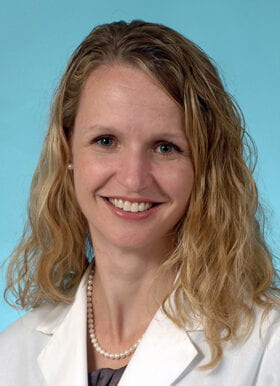
Alison Snyder-Warwick
Associate Professor of Surgery
Our laboratory studies the neuromuscular junction during embryogenesis, homeostasis, injury and recovery, and aging. We specifically study the roles of terminal Schwann cells in these events and the cells with which they interact.

Lilianna Solnica-Krezel, PhD
Professor and Head, Department of Developmental Biology; Co-Director, Center of Regenerative Medicine; Affiliate, Department of Biomedical Engineering
- Email: solnical@wustl.edu
The Solnica-Krezel lab studies the cellular and molecular genetic mechanisms underlying vertebrate gastrulation in zebrafish and human embryonic stem cells.

Stephen Stone, MD
Assistant Professor, Department of Pediatrics
- Email: sstone@wustl.edu
Dr. Stone studies the role of Fibroblast Growth Factors in Severe Insulin Resistance Syndromes. His research uses both murine and stem cell based models to better understand these rare and debilitating conditions, with the ultimate goal of providing new therapies for these patients.

Amber Stratman, PhD
Assistant Professor, Department of Cell Biology & Physiology, Department of Developmental Biology
- Email: a.stratman@wustl.edu
The Stratman lab is broadly interested in how blood vessels form and stabilize during development, and how changes in these processes affect tissue homeostasis and disease.

Thorold Theunissen, PhD
Assistant Professor, Department of Developmental Biology
- Email: t.theunissen@wustl.edu
The Theunissen lab investigates the molecular mechanisms regulating distinct pluripotent stem cell states and their applications in regenerative medicine.

Tony Tsai, MD, PhD
Assistant Professor, Department of Developmental Biology; Affiliate, Department of Biomedical Engineering
- Email: tonytsai@wustl.edu
Why are tissue patterns and shapes so precisely controlled in embryos but not stem cell-derived organoids? Can we learn how to build tissues reproducibly by studying how embryos accomplish this? The Tsai lab uses zebrafish as the primary model to investigate the rules of tissue patterning and morphogenesis. They combine interdisciplinary approaches such as live embryo imaging, CRISPR genetics, single-cell genomics, mechanical assays, and computational modeling.